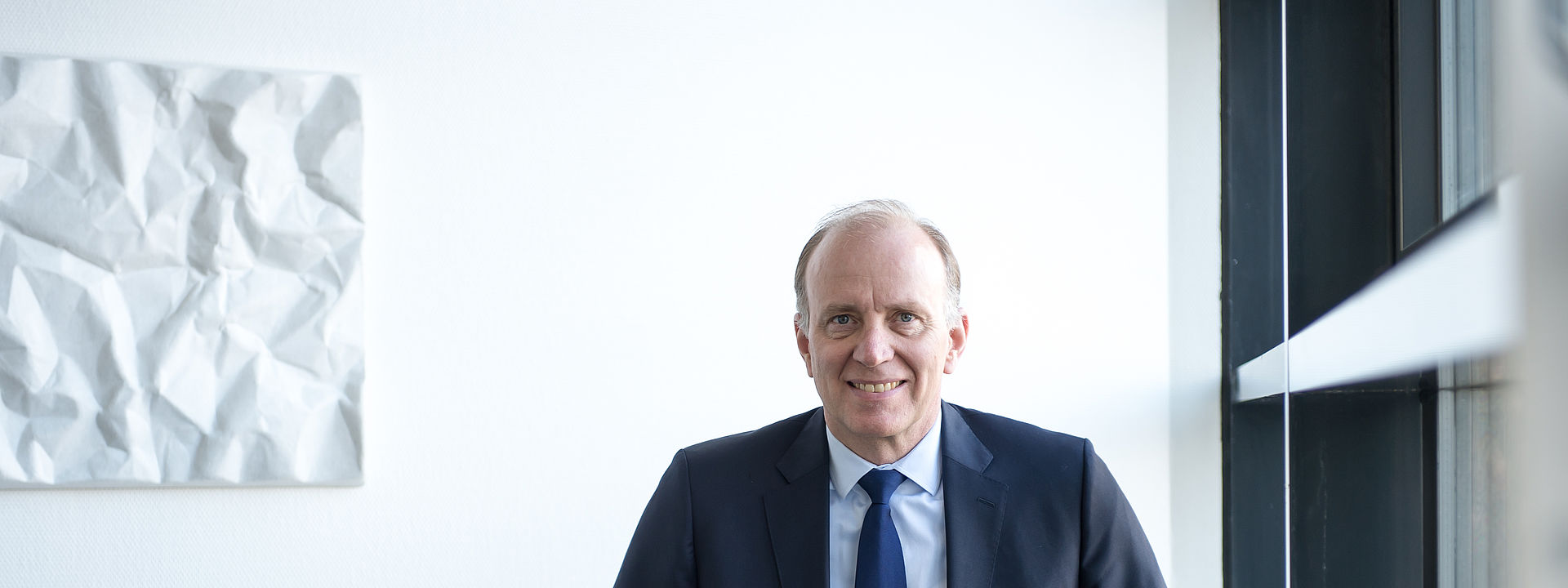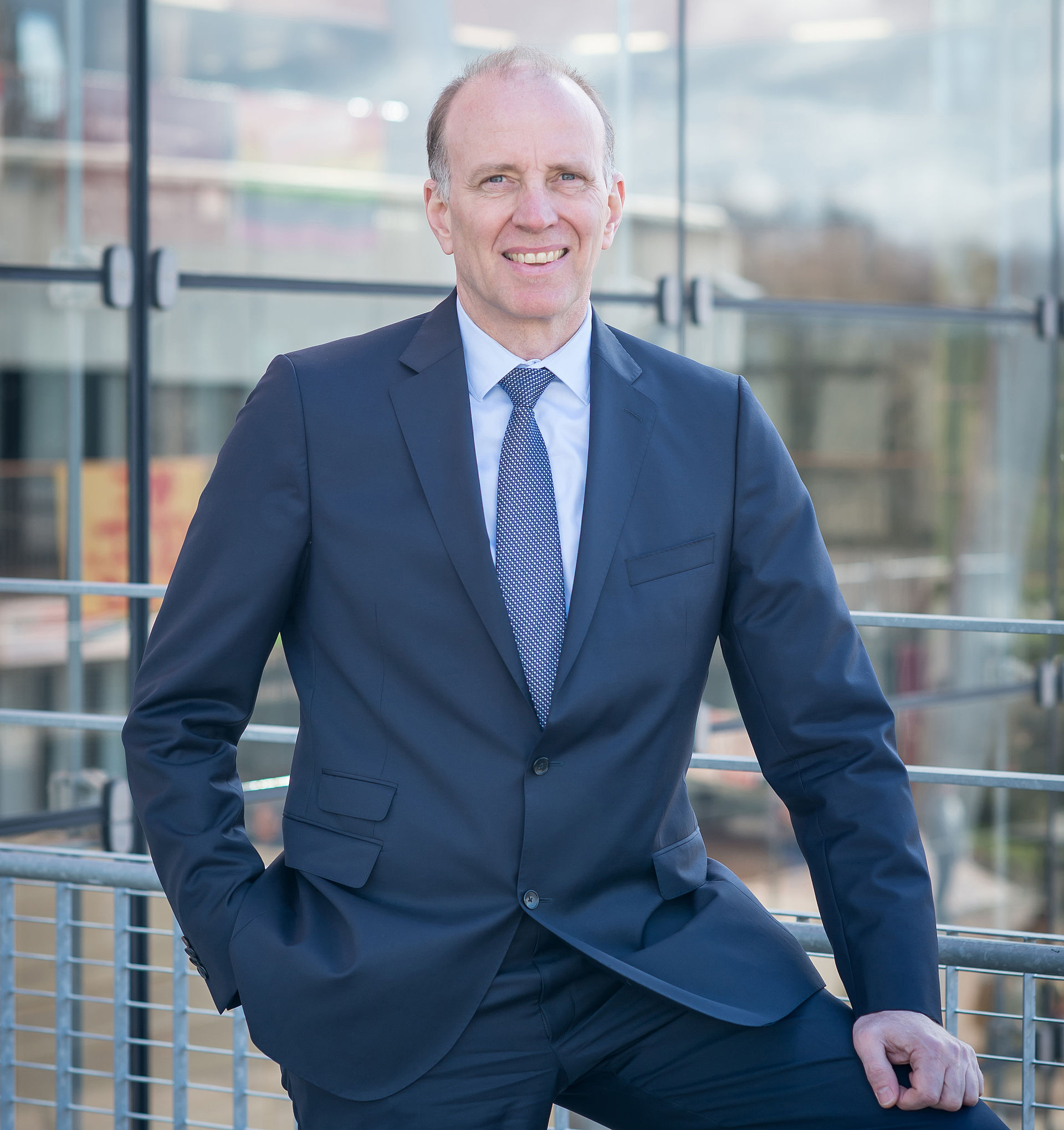June 14, 2018. I admit that I am really thrilled when I see how German astronaut Alexander Gerst is captivating the general public with his second stay on board the ISS. An incredible 1.2 million people are following him on Twitter. This week, “Astro Alex” has already held a live press conference during which he described his never-ending fascination of viewing the earth at a distance of around 400 kilometers.
through this distance we are able to achieve a proximity to ourselves
The idea of looking at the earth from space has always held enormous appeal for me as well. I know a number of astronauts personally and in talks with them I have always been interested in finding out what effect this unaccustomed perspective has on them. Basically, they all say much the same thing, namely that it is only when you see the earth from space that you really appreciate just how unique, wonderful and also vulnerable our planet is. From a distance of several hundred kilometers it seems almost inconceivable that the paper-thin atmosphere enveloping the earth is evidently the only thing that protects people living on the surface of the planet from certain death. By the same token, many astronauts are subsequently amazed at the carelessness with which we frequently treat this precious planet.
I can well image that viewing the earth from such a perspective has a deeply philosophical effect for ultimately we are looking back on ourselves from the space ship. It is only through this distance from the earth that we are able to achieve an intensive proximity to ourselves. This is how Apollo 14 astronaut Edgar Mitchell, who in 1971 became the sixth man to set foot on the moon, described the impressions that his journey into space had left on him: “I realized that I am made up of the same particles and atoms as the objects that I saw outside our spaceship. So, I am nothing more than stardust.” This “overview” effect was first experienced by the Apollo 8 crew, who pointed their camera back at the earth for the first time on their journey through space in 1968. For the first time, humanity was able to see this blue sphere embedded in the blackness of infinity.
I would love to have the opportunity of experiencing this myself one day.
I would love to have the opportunity of experiencing this myself one day. Unfortunately, however, I’m just a little too old and probably no longer fit enough to qualify as a successor to Alexander Gerst. But who knows? Maybe the efforts being taken by various private-sector companies to offer affordable journeys into space and to establish space tourism as a new industry could soon be successful. In this case, I would definitely consider flying into space as a tourist.
In the meantime, however, I remain convinced that the descriptions published by astronauts such as Alexander Gerst can make an important contribution to conveying the benefits of space travel to a broad audience. And this means much more that purely scientific or technological advantages, which, incidentally, I think are still being underestimated. Beyond this, the view of the earth from space which unleashes a philosophical or religious effect on astronauts will leave a growing impression via satellite technology. In particular, the future generation of satellites used in the European Copernicus earth observation mission will be able to provide us with findings from a distance that may well protect the earth from being destroyed by humanity. It is no coincidence that the Copernicus satellites are known as “sentinels”.
Conveing the enthusiasm for space: OHB will be forging a partnership to a school
I think it is very important for those who are lucky enough to see the earth from space to tell others – particularly children – about this. For this reason, I am very pleased that Alexander Gerst is working with the German Space Agency (DLR) to visit many schools. Classes in which astronauts report on their experience in space have a greater proportion of school students who go on to specialize in STEM subjects. At OHB we are also committed to arousing young people’s interest in space. In the new school year we will be forging a very close partnership with a school here in Bremen, supporting it in the area of space, e.g. through tuition provided by our engineers.
And, of course, I would be particularly pleased if I could arrange for Alexander Gerst to visit this school after he returns from his Horizon mission.
Personal details:
Born in 1962, Marco Fuchs studied law in Berlin, Hamburg and New York. He worked as an attorney in New York and Frankfurt am Main from 1992 to 1995. In 1995, he joined OHB, the company that his parents had built up. He has been Chief Executive Officer of OHB SE since 2000 and of OHB System AG since 2011. Marco Fuchs is married and has two children.


